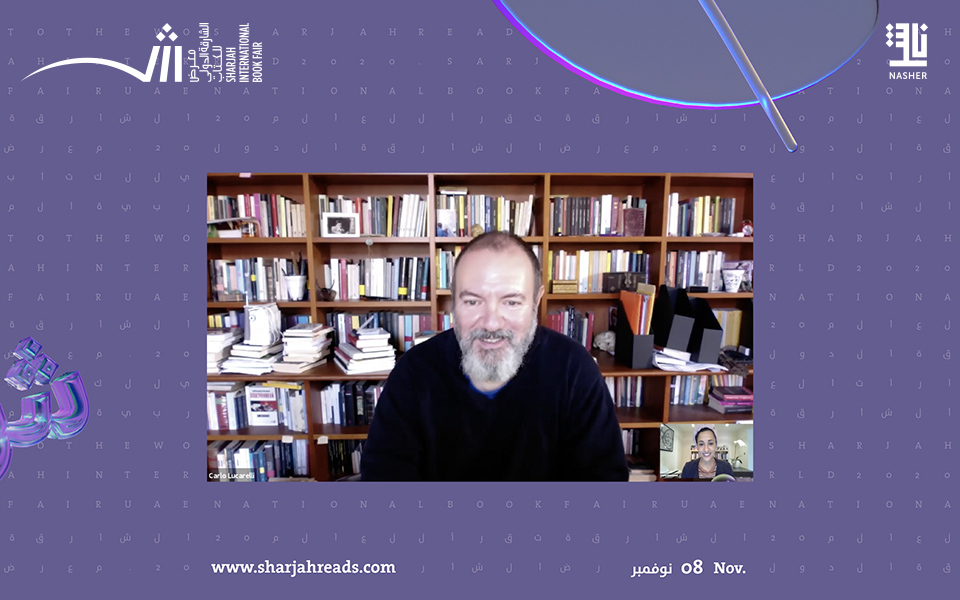Where does a crime fiction writer get his/her inspiration from? What influences him/her the most – is it real crimes or creatively woven scenarios that emerge from the depths of a writer’s imagination?
Carlo Lucarelli, one of Italy’s best-loved crime writers, was at the 39th Sharjah International Book Fair yesterday to answer these questions and more, in a virtual session broadcast on the ‘Sharjah Reads’ platform.
Speaking to moderator Layla Mohamed, the mystery and crime novelist whose 11 novels including his latest L’inverno Più Nero depict the dark side of his country, said that the inspiration for his style of “presenting historical facts in the technique of a detective novel”, varies according to the medium he writes for, be it movies, radio, theatre, or TV.
Lucarelli said that his television series which examines unsettling and unsolved crimes and the urban centres in which they occur, relies on the testimonials of real people and has to follow facts while it is in his narration of criminal novels that he is able to give a free rein to his imagination.
“I prefer novels because they are not bound by the limits of reality; it allows me to be free, open, and curious,” said the author who made his publishing debut in 1990 with the extremely successful De Luca Trilogy.
Describing the first time he wrote at the age of 13 in his grandfather’s house, he said: “I had nothing to do one afternoon, but my head was filled with ideas. I browsed books in my library and surfed channels on TV looking for content that would resonate with these ideas. Finding none, I decided to express myself in words, and those little stories soon set the base for my career as a crime writer.”
It was through his mother, who read all genres of fiction and shared her books with him, that he first became acquainted with crime stories, Carlo explained. “I enjoyed the books that were filled with mysteries, had secrets, made me a bit scared, and did not reveal the full story immediately. The thrill of reading books that make you look over the shoulder, startle you at the sound of a noise, and piques your curiosity to know what is next, interested and inspired me.”
What makes Lucarelli’s novel different is that it weaves in the largely unspoken history of his country’s colonial past to form the backdrop of his suspense thrillers. “The average Italian does not like to confront the past; but I choose to take events that transformed the community and offer new perspectives for people to reflect on what happened, what went wrong, how to choose better and move forward while healing ourselves in the process. Woven within these historical events are elements of bloodshed, violence, gripping suspense, gangs and murderers to keep the reader intrigued to the very end.”
Stating that crime had dropped drastically during the recent lockdown across Italy, he added: “Living within the confines of our four walls for a prolonged period has changed us, and this will eventually reflect in our writing.”







